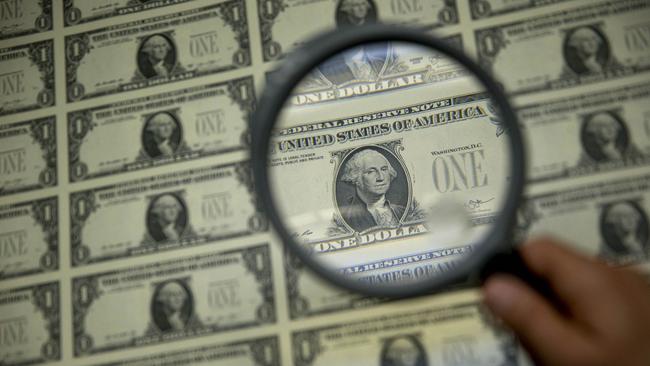Cash remains king as companies close a dismal second quarter
Giant companies from McDonald’s to Intel are husbanding cash and cutting costs amid uncertainty due to COVID-19.

Giant companies from McDonald’s to Intel are husbanding cash, cutting costs and tapping debt, all moves that bolster their resilience amid persistent uncertainty wrought by the new coronavirus.
At the same time, corporate leaders and investors are gauging when it will make sense to economise less and spend more to avoid losing out to rivals once the recovery begins in earnest.
“I would just want to get through a couple more months of understanding what that recovery looks like,” Robert McMahon, chief financial officer of life-sciences company Agilent Technologies, told investors early this month. “Liquidity is still an asset that we want to have in our back pocket. We have a lot of it, and I think it will serve us well versus some of our competitors when we come out of this.”
As the pandemic swept the US, large companies significantly increased cash and short-term investments as well as total debt — much more rapidly than they did in the preceding quarters, according to a Wall Street Journal analysis of financial data from S&P Global Market Intelligence.
For S&P 500 companies, the median increase in cash and short-term investments was 13.9 per cent in the March quarter, compared with less than 4.1 per cent in the prior three quarters, the analysis found. The degree to which firms spent or saved those funds will be evident when they report second-quarter results starting next month.
PepsiCo borrowed $US7.6bn ($11.7bn) in the first quarter, doubling the cash on its balance sheet. Hilton Worldwide Holdings raised $US1bn by selling loyalty points. Home builder Lennar paused land purchases. Carnival is selling six ships. And Agilent was among those that continued to draw on operations abroad during the northern spring by repatriating foreign profits.
Companies stockpile cash in a crisis for much the same reason households do: it provides flexibility in an uncertain environment, protecting against further crises or suddenly parsimonious capital markets. It also serves as ready fuel once sustainable growth resumes and new investment makes sense.
“The real clarity is going to be when they know what spikes in the virus mean for consumer behaviour,” said Blair Effron, co-founder of investment bank Centerview Partners. Companies knew the economy was bad now, he said, but needed to better understand what it would look like in coming months.
Central bankers around the world have committed to providing liquidity to banks and companies. As a result, in contrast to the global financial crisis of 2008 and 2009, when lending and investment capital evaporated suddenly, healthy companies aren’t having difficulty getting access to cash, making it even easier to keep their tanks full.
Cheap debt has made that reflex easier to indulge, even while spending to expand or maintain operations.
The Federal Reserve cut interest rates in March near zero and has been buying Treasuries and mortgage-backed securities.
“Holding cash gives more flexibility to the company in terms of what it should do,” said Lee Pinkowitz, an associate professor of finance at Georgetown University whose research has shown that investors value cash more highly in a crisis.



To join the conversation, please log in. Don't have an account? Register
Join the conversation, you are commenting as Logout